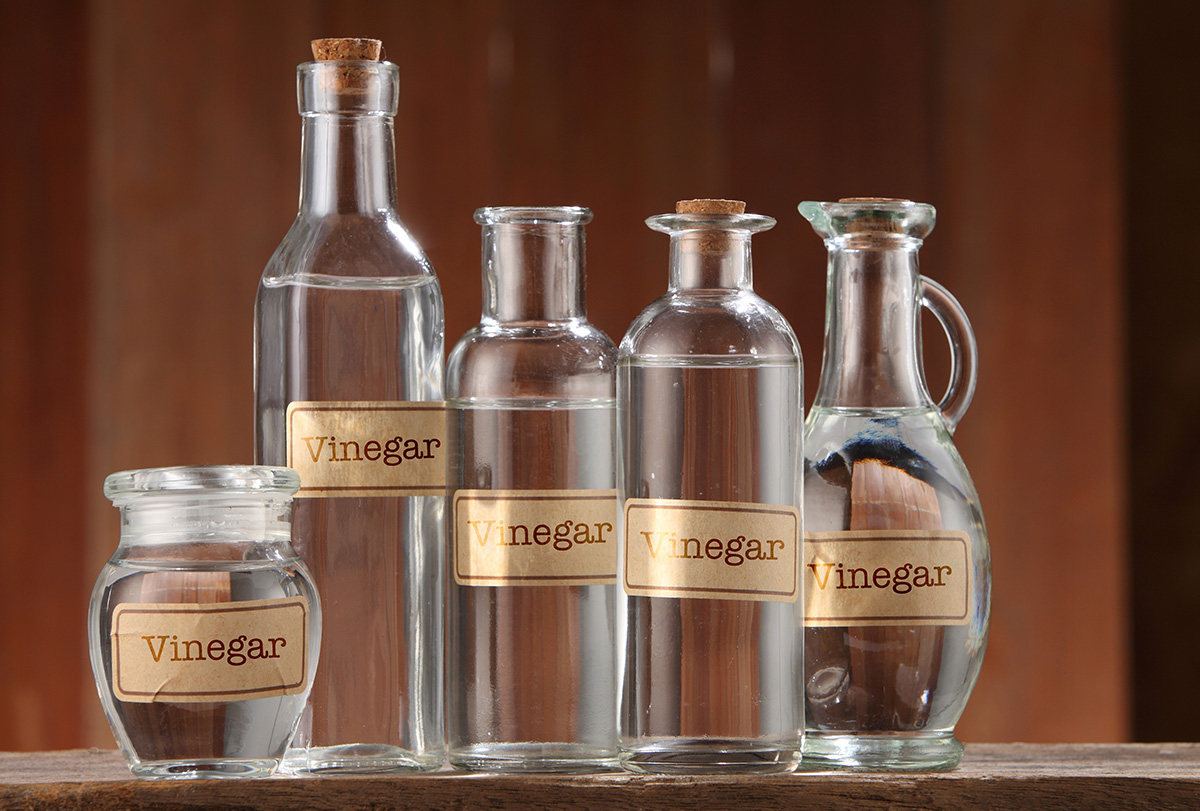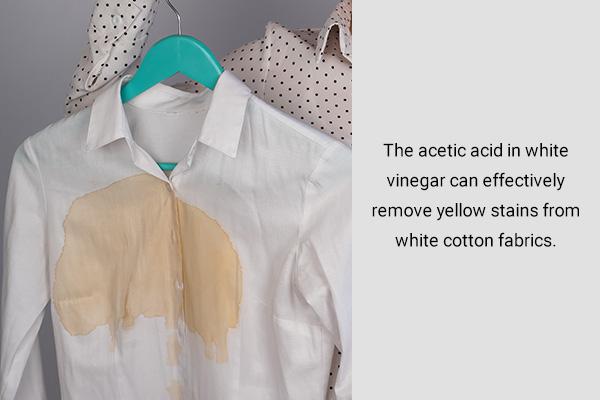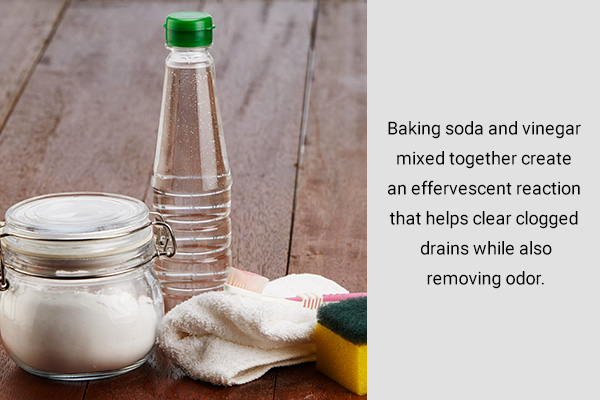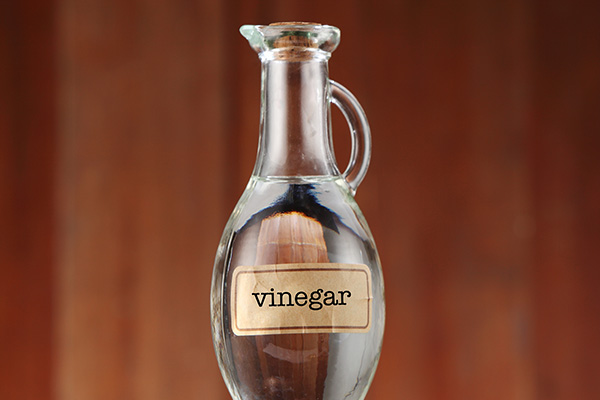In this article:
Vinegar is a multifaceted household item made from fermenting carbohydrate-rich sources. Vinegar’s use can be traced way back in history.

Depending on the food source to be fermented and the strain of bacteria or yeast used, there can be various types of vinegar. Rice vinegar, apple cider vinegar, balsamic vinegar, and white vinegar are some of them. (1)
The main strong scent and flavor of vinegar come from its main component – acetic acid.
Since the time of Hippocrates, vinegar was found to be beneficial for conditions including diabetes, cancer, and heart diseases. But other than its medicinal uses, vinegar was also used to treat wounds, preserve foods, and various other purposes. (2)
It is usually white vinegar that is useful for nonfood purposes, and this article will take a deep dive into some ways it is utilized.
Nonfood Uses of Vinegar
Here are some unconventional uses of vinegar you might not know about.
1. Cleans groceries
Most fruits and vegetables bought from grocery stores these days are full of pesticides. These are used to prevent creatures, bugs, and pests from eating into the flesh, as well as to ripen the produce.
Since most of the pesticides remain on the skin, proper washing techniques can help in removing these chemical pesticides. (3)
A vinegar solution (2 spoons of vinegar in a liter of water) has been found to be effective in cleaning pesticide residue from fruits and vegetables. (3)
A recent study has also found that rice vinegar was the most effective (out of all the other solutions) in removing pesticides from food items. (4)
2. Cleans the home
Vinegar is an effective antimicrobial, antifungal, and antiviral agent. Studies have found vinegar to be effective against Salmonella, E. coli, and some viruses. For this reason, vinegar can be used as an effective “clean” and “natural” alternative to chemical cleaners and bleach. (5)
3. Disinfects laundry
Vinegar’s disinfectant property is used to remove microorganisms from the laundry in the washing machine. (5) Vinegar is also hypoallergenic and is not likely to cause allergic reactions on the skin.
4. Whitens clothes

The acetic acid in white vinegar is effective in removing the yellow stains from white cotton fabrics. Adding ½ cup of white vinegar to 1 cup of water will not only whiten clothes but also soften the fabric. (6)
5. Removes stains
Vinegar, due to its acetic acid content, is effective in cleaning soiled fabric and reducing disease-causing pathogens. At the same time, it reduces odor-causing bacteria from dirty clothes. (7)
6. Serves as a natural pesticide
Vinegar is effective in preventing the growth of weeds in your garden while also acting as a natural pesticide.
A study has found agriculture-grade apple cider vinegar to keep fruit flies away from garden plants. (8)
7. Removes odor
Vinegar can effectively kill odor-causing bacteria from various surfaces such as clothes, table counters, and floors. (7)
8. Unclogs drains

Baking soda and vinegar when mixed together, create an effervescent reaction that helps clear clogged drains while also removing odor. (9)
Sprinkle 1 large tablespoon of baking powder on your drain and follow up with ½ cup of white vinegar poured over the powder. Run cold water after 30 minutes.
9. Keeps flowers fresh
Some people add 1 tablespoon of vinegar to the water in their vase of fresh flowers. It prevents the flowers from drying out too quickly by preventing the growth of bacteria due to its antibacterial activity. (5) It can make your fresh flowers last twice as long.
10. Removes wrinkles from clothes
White vinegar mixed with water (1 part vinegar to 3 parts water) is used as a chemical-free antiwrinkle spray. Simply spray your garment and hang it to dry.
Precautions to Consider
While using vinegar for laundry, do not pour undiluted white vinegar directly on your clothes. Always dilute the vinegar (1 part vinegar to 1 part water before adding it to the washing water).
Most-Asked Questions
Can I use vinegar as a skin toner?

Vinegar is a harsh agent that should not be used on the skin even after diluting.
Is vinegar safe for pets?
Vinegar is usually safe for pets in case they accidentally lick it.
Final Word
White vinegar is used for various household purposes including cleaning, disinfecting, and deodorizing laundry, removing pesticides from fruits and vegetables, keeping pests away from your garden, and keeping fresh flowers alive for longer.
Vinegar is also an environmentally friendly option as a household cleaner and can be safely used around children and pets.
- Was this article helpful?
- YES, THANKS!NOT REALLY


